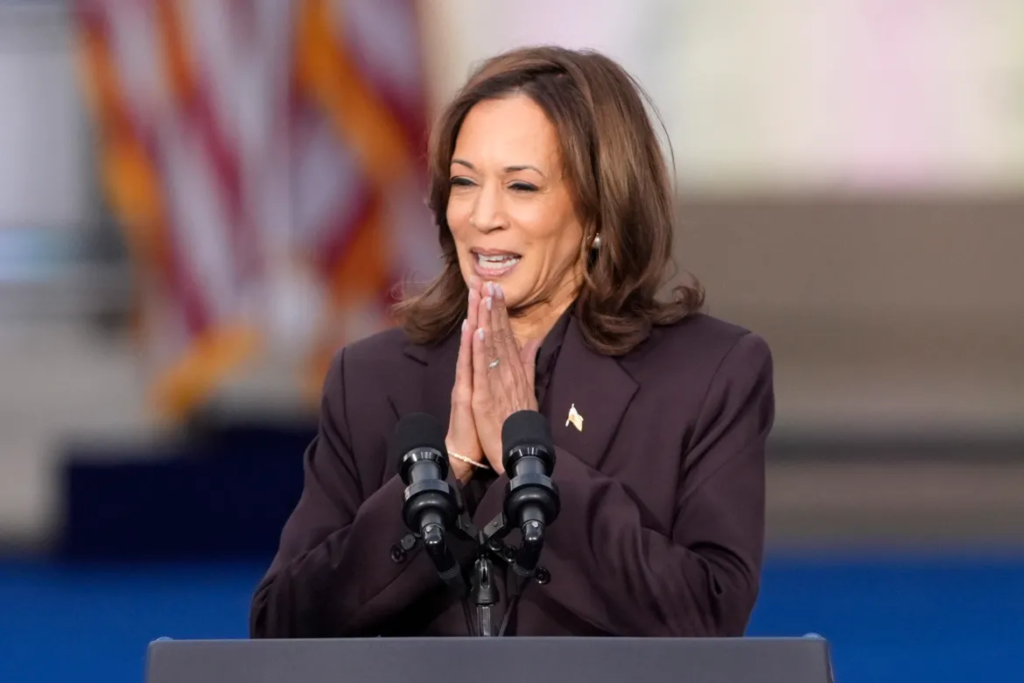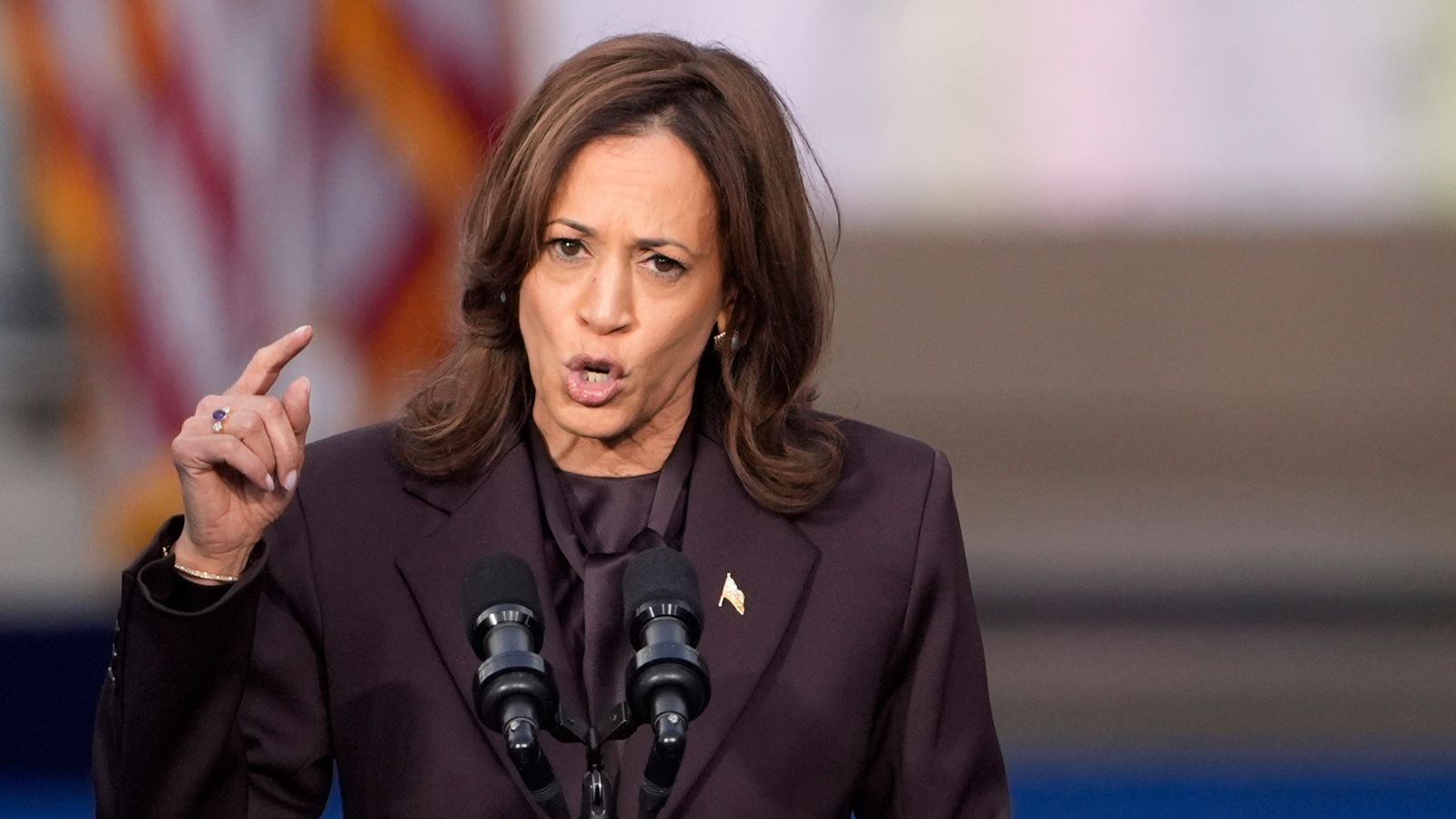Vice President Kamala Harris has formally conceded the 2024 U.S. presidential election to Donald Trump, congratulating him on his victory in a personal phone call. This historic race marks a significant moment in American politics as Harris ran as the first female vice president seeking the presidency after President Joe Biden withdrew his candidacy earlier this year.
Harris’ concession, following a close and challenging campaign, brings attention to several major dynamics in the American political landscape, from campaign challenges and electoral shifts to policy visions that could define the nation’s future.
A Respectful Concession: Harris and Trump’s Exchange on Unity
Kamala Harris reached out to President-elect Donald Trump to concede, demonstrating a spirit of unity and respect even amid a hard-fought race. According to Harris’ campaign chair, Jen O’Malley Dillon, Harris assured Trump during the call that she would work with President Biden to ensure a peaceful transfer of power.
In a post-election statement, Trump’s campaign acknowledged Harris’ professionalism, recognizing her strength and tenacity during the campaign. Both Harris and Trump reportedly discussed the importance of unifying a divided country.
Read : Donald John Trump Wins US President Election 2024
In a time marked by political polarization, this gesture of respect and dedication to the democratic process resonates powerfully. Harris’ team noted that she emphasized her hope for Trump to serve as a president for all Americans.
Read : Watch: Trump Criticizes Biden Over G7 Appearance in Italy – “He Had No Idea Where He Was”
This theme of unity was echoed by President Biden, who also reached out to both Harris and Trump to congratulate them on the campaign and confirm his support for a smooth transition. Biden underscored the importance of bringing the country together, a message he plans to address publicly in a speech later this week.
A Challenging Campaign for Harris Amid Political Shifts
Kamala Harris faced a unique set of challenges on her road to the 2024 election. Her journey to the presidential race began when Biden, at age 81, withdrew from the race in July, citing health concerns and challenges raised after a tough debate against Trump. Although Biden endorsed Harris as the Democratic Party nominee, Harris faced steep hurdles as she navigated the campaign trail.
Despite her significant achievements, Kamala Harris encountered a gender gap in voter support, with more male voters—particularly white men—favoring Trump. NBC’s exit poll showed that 54% of male voters cast their votes for Trump compared to 44% for Harris.
Her campaign faced the difficult task of maintaining distance from Biden’s administration while crafting a platform that highlighted change.
Harris’ proposals, such as an “opportunity economy” aimed at benefiting the middle class, a national codification of Roe v. Wade protections, and plans to alleviate housing and healthcare costs, represented a commitment to addressing domestic issues affecting everyday Americans.
However, Kamala Harris struggled to overcome her perceived alignment with the Biden administration, particularly among voters eager for change.

Harris’ campaign also encountered a rapidly changing electoral landscape, marked by critical battleground states like Pennsylvania, Georgia, North Carolina, and Wisconsin swinging in favor of Trump. Trump’s campaign strategy, launched shortly after the 2022 midterm elections, allowed him a longer runway to rally his base and amplify his messages.
By contrast, Harris had a condensed three-month period to gain ground and convince voters amid a close, high-stakes race. She framed herself as the “underdog” in the election, acknowledging the uphill battle as she faced the challenges of maintaining voter support and responding to attacks from her opponent.
Despite her loss, Harris’ campaign succeeded in rallying a diverse coalition of supporters around her policy goals, including economic reform, healthcare, and protecting democracy.
Trump’s Victory and Future Implications
Donald Trump’s victory in the 2024 election carries significant implications for America’s future. Known for his polarizing influence, Trump has promised to prioritize economic strength, navigate international conflicts, and reinstate policies that appeal to a broad swath of his supporters.
Despite facing legal challenges and a conviction in a New York hush money case, Trump’s ability to secure victory highlights his influence among core voter demographics. His support among men and a favorable reception in key battleground states underscore a continued appeal that has resonated since his initial campaigns in 2016.
Trump’s second term will likely focus on strengthening the economy and addressing ongoing international crises in Ukraine and the Middle East. His administration will face questions about upholding democratic values, a concern that Harris frequently highlighted during her campaign.

The campaign dynamic, characterized by Harris’ emphasis on democracy and Trump’s commitment to strong leadership, reflects deep-rooted political divides. These contrasting visions emphasize the ongoing dialogue on what direction Americans want for their country, particularly in domestic and foreign policy.
With Harris’ concession, attention now turns to Trump’s forthcoming administration, the policies he intends to implement, and the unification efforts needed to bridge the nation’s divides. As Biden’s administration and Trump’s team work together on a smooth transition, Americans and the world will closely watch how Trump’s approach unfolds.
Kamala Harris, on the other hand, has expressed her commitment to the American people and a continued focus on key issues that impact citizens’ daily lives. Her concession may mark the end of a campaign, but her influence and policies will continue shaping the discourse on equality, opportunity, and democracy in the years to come.

